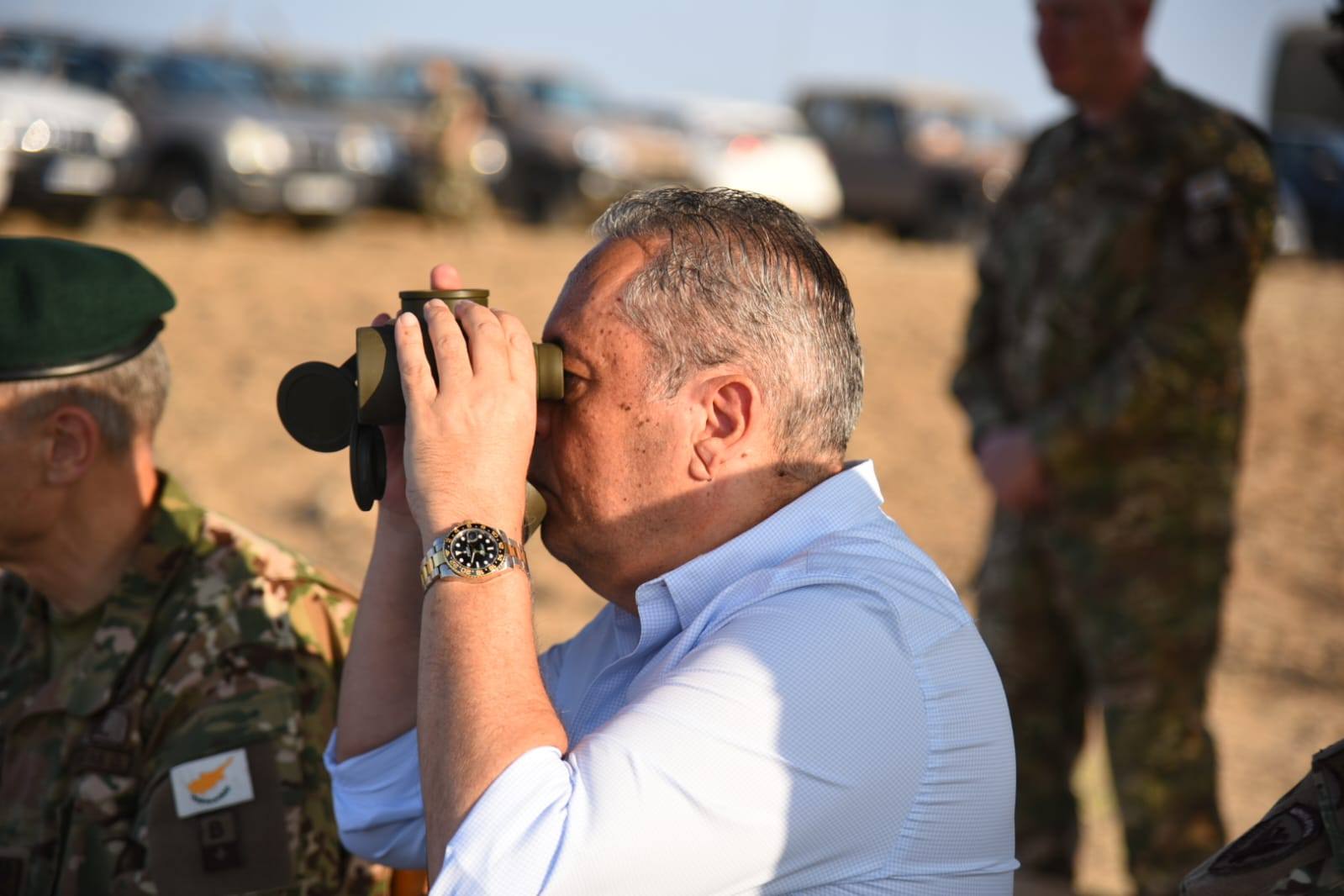Defence Minister Vasilis Palmas on Wednesday said there are “loopholes” which may allow Turkey to participate “indirectly” in the European Union’s Security Action for Europe (Safe) programme.
Speaking after the day’s cabinet meeting, he said there are “difficulties and obstacles for Turkey to participate in this process”, but stressed that “I want to be completely honest and say that there are some loopholes which may ultimately lead to Turkey participating indirectly”.
He made reference to European Council president Antonio Costa’s visit to the island on Monday, saying Costa had been “clear and unambiguous on the matter” of Turkey potentially joining the Safe programme and that his words “do not need any misrepresentation”.
Costa had said the Safe programme’s rules are “clear” and that the programme is “open to third countries, but to third countries which do not constitute a threat to the security of any member state”.
“States which attack or threaten the security of a member state cannot be allowed to use Safe,” he added.
The Safe programme is open to all 27 EU member states, as well as the four European Economic Area States – Iceland, Liechtenstein, Norway and Switzerland – and Ukraine, as well as six other countries which have signed common defence agreements with the EU – Albania, Japan, Moldova, North Macedonia, South Korea and the United Kingdom.
Turkey would be eligible to sign an agreement similar to that of the UK with the EU and gain access to the Safe programme, but defence agreements require unanimity among EU member states.
The Republic of Cyprus would be minded to veto such an agreement, though Palmas alluded to “pressure” placed on EU diplomats by Nato with the aim of allowing Turkey to fully participate in the programme, particularly after the Turkish government formally filed a request to participate in the programme earlier this week.
Greek newspaper Kathimerini reported on Tuesday that Nato secretary-general Mark Rutte had “signalled support” for Turkish participation in the programme during a meeting with EU ambassadors, arguing that “engagement” between the EU and Turkey “is essential for stronger Nato cooperation”.
Exactly 23 of the EU’s 27 members are also Nato members.
Palmas on Wednesday said the government “expected such pressure from Nato to give Turkey the opportunity through Safe to strengthen itself”.
However, he said, Cyprus’ opposition to Turkey’s joining of the programme has been “expressed with one mouth and one voice” alongside Greece and its defence minister Nikos Dendias.
This, he said, has been going on “for at least a year in all of the European Union’s defence councils”.
“We emphasised the fact that we are not against third states from the international community being able to participate through other European states in these programmes, provided that they do not pose a danger to member states or to the Union,” he said.
However, he said, “in this case, Turkey is a state which has been established in Cyprus as an invader for 51 years and at the same time threatens Greece itself daily in the Aegean and in the Greek islands”.
He added that despite this, he acknowledges that other EU member states may have differing views towards Turkey and potential defence partnerships with the country.
“The European Union may be a union of 27 member states, [but] at the same time, unfortunately, there are also bilateral and trilateral interests, whether these are economic or military-based, and Turkey is not a negligible case, but a large state of 80 million people with a large military and economic displacement,” he said.
The “loophole” to which Palmas was been referring could be the stipulation in the Safe programme’s law that “common procurements involving subcontractors which are allocated between 15 per cent and 35 per cent of the value of the contract” and are not based in the EU or any of the countries with which it has an agreement will also be eligible for Safe funding.
This stipulation could allow Turkish manufacturers, or manufacturers from any other country, to receive Safe funding.
Cyprus secured over €1 billion of funding for military hardware through the Safe programme last week, while 18 other EU member states are also in line to receive funding as part of the €150bn allocated by the commission to the programme earlier this year.






Click here to change your cookie preferences